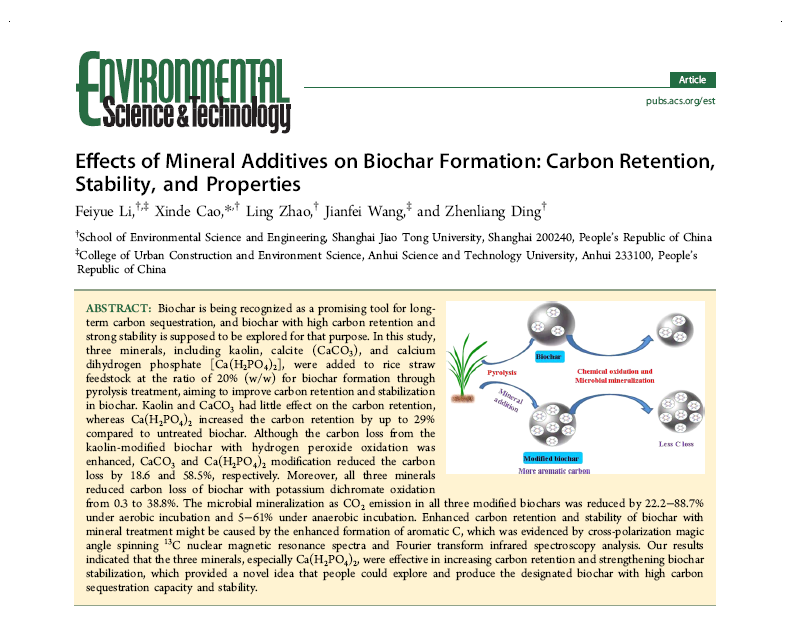Effects of Mineral Additives on Biochar Formation: Carbon Retention, Stability, and Properties
2017-11-27
Feiyue Li, Xinde Cao, Ling Zhao, Jianfei Wang, and Zhenliang Ding
ABSTRACT
Biochar is being recognized as a promising tool for longterm carbon sequestration, and biochar with high carbon retention and strong stability is supposed to be explored for that purpose. In this study, three minerals, including kaolin, calcite (CaCO3), and calcium dihydrogen phosphate [Ca(H2PO4)2], were added to rice straw feedstock at the ratio of 20% (w/w) for biochar formation through pyrolysis treatment, aiming to improve carbon retention and stabilization in biochar. Kaolin and CaCO3 had little effect on the carbon retention, whereas Ca(H2PO4)2 increased the carbon retention by up to 29% compared to untreated biochar. Although the carbon loss from the kaolin-modified biochar with hydrogen peroxide oxidation was enhanced, CaCO3 and Ca(H2PO4)2 modification reduced the carbon loss by 18.6 and 58.5%, respectively. Moreover, all three minerals reduced carbon loss of biochar with potassium dichromate oxidation from 0.3 to 38.8%. The microbial mineralization as CO2 emission in all three modified biochars was reduced by 22.2−88.7% under aerobic incubation and 5−61% under anaerobic incubation. Enhanced carbon retention and stability of biochar with mineral treatment might be caused by the enhanced formation of aromatic C, which was evidenced by cross-polarization magic angle spinning 13C nuclear magnetic resonance spectra and Fourier transform infrared spectroscopy analysis. Our results indicated that the three minerals, especially Ca(H2PO4)2, were effective in increasing carbon retention and strengthening biochar stabilization, which provided a novel idea that people could explore and produce the designated biochar with high carbon sequestration capacity and stability.
